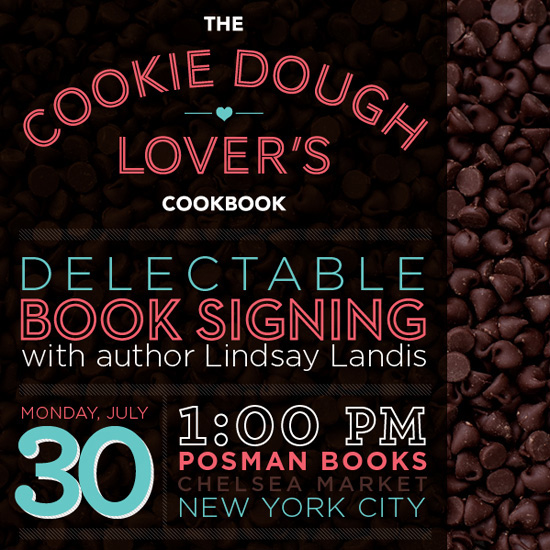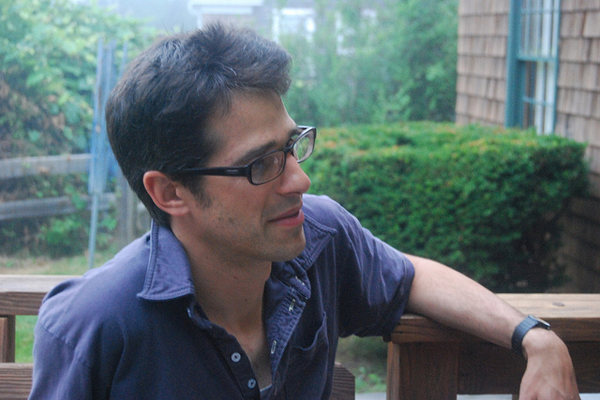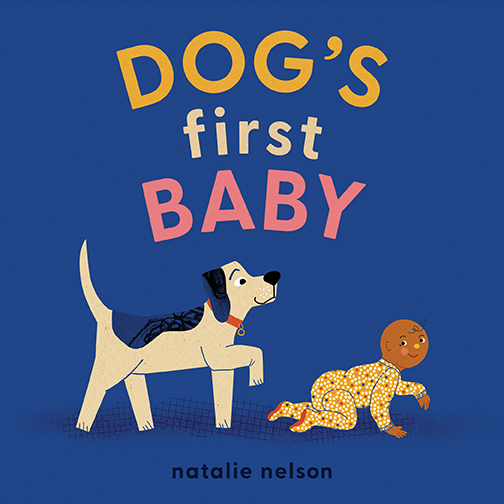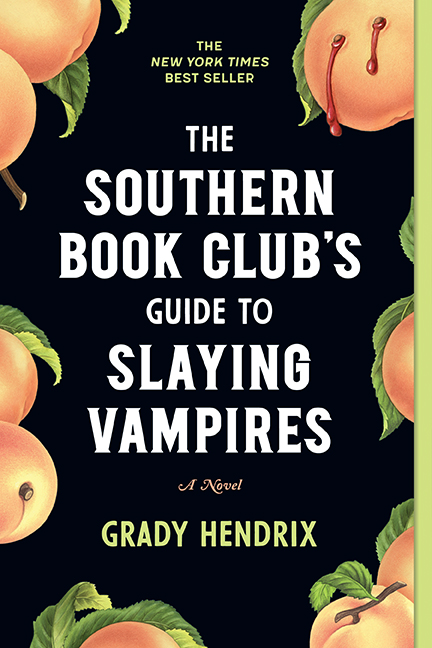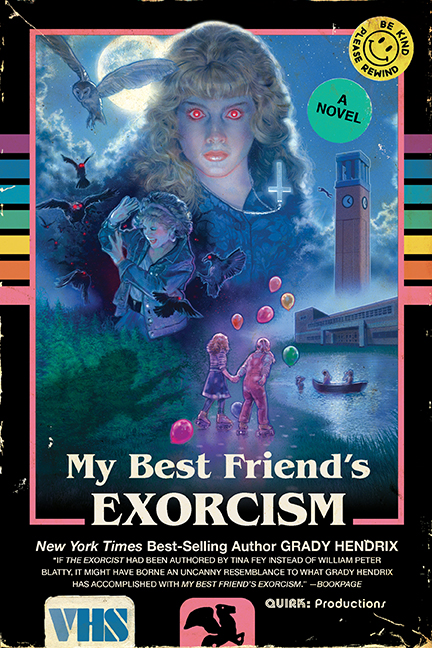Our Blog
Top 10 Literary References in Archer
Filled with incredibly obscure references that send watchers stampeding to Wikipedia (ie: Who am I, Alan Turing?), Archer isn’t only one of the funniest shows on television. It’s also one of the smartest.
And wow, does this show love making literary references. From Tolkien to Shakespeare, Melville to Orwell, the past three seasons of FX’s Archer has been full of them.
So read on, and share your favorite literary moments in the comments.
Posted by Eric Smith
A Q&A With Thomas J. Craughwell, Author of Thomas Jefferson’s Creme Brulee
We sat down with Thomas J. Craughwell, the author of Stealing Lincoln’s Body, Saints Behaving Badly, and Quirk's This Saint Will Change Your Life.
In the quick Q&A, he talks about his latest book with us, Thomas Jefferson's Creme Brulee. Read on!
Q. What first gave you the idea to tell this story?
A. As the titles of a couple of my other books suggest—Stealing Lincoln’s Body, Saints Behaving Badly—I’m drawn to off-beat stories. Typically I come upon these stories by chance. That was the case with this book. I knew Jefferson had been in France for five years, and I knew that he was food-and-wine hound. In spring 2011 I was reading a book about Jefferson when I came upon a reference to Jefferson having one of his slaves trained in the art of French cuisine. I did a little hunting around in libraries and found there was enough material for a book.
Q. What made Thomas Jefferson’s eating habits so different from his colonial contemporaries?
A. In the 18th century, Americans and their cousins back in England were heavy meat-eaters. Jefferson preferred vegetables, with a little meat as a side dish or a condiment—that made him unusual. Furthermore, he was an adventurous diner—Jefferson was growing and eating tomatoes when most Americans still believed the fruit to be poisonous. And while most Americans considered simple food prepared in an uncomplicated manner a sign of republican virtue, Jefferson had a deep interest in sophisticated cooking techniques and in dinners that brought a succession of interesting flavors to the table. Patrick Henry, one of Jefferson’s severest critics, denounced him as a man who had “abjured his native victuals!”
Q. The book presents accounts of Jefferson’s scientific approach to gardening, but also his adventurous approach to eating. What do you think made Jefferson so focused on food? Would you say he thought of it as a science or an art?
A. Fundamentally, Jefferson was a farmer. That’s how he made his living. Granted, Monticello was not a typical farmhouse, and Jefferson not a typical farmer. Nonetheless…. He had a scientific mind, so he was always on the look-out for more efficient ways to raise crops, to increase harvests. He experimented with hundreds of varieties of fruit and vegetables to find the ones that were pest resistant, that flourished in the Virginia climate, and also tasted great. But in addition to having a scientist’s mind, Jefferson’s had a gourmet’s palate. The food he grew was brought to his table, so he wanted the best.
Q. The book shows a Thomas Jefferson enamored with French culture and quite disappointed to leave his home there. Was cuisine a way for Jefferson to bring a bit of France home with him to the U.S.?
A. Absolutely. But he wasn’t selfish about it—what he learned and acquired in France he wanted to share with his fellow Americans. He hoped to see Arborio rice and olive groves flourishing in South Carolina, and he thought he could produce America’s first grand cru wines at Monticello. Alas, in Jefferson’s lifetime, none of those grand ideas panned out.
Q. There is little written record of James Hemings’ life. How did you begin to piece together his story with such limited source material?
A. I wish we knew much more about James Hemings. That said, we know more about him than we do about most slaves in the 18th-century America. James and his brothers and sisters had been fathered by Jefferson’s father-in-law. So the members of this slave family were Thomas Jefferson’s sister- and brothers-in-law. They were the most privileged slave family at Monticello, and they appear often in Jefferson’s household records as well as his personal correspondence. Monticello’s encyclopedic website has a lot of information about James Hemings and his family. But the absolutely indispensable resource is Annette Gordon-Reed’s book, The Hemingses of Monticello.
Q. What lasting impact do you think Thomas Jefferson and James Hemings had on the American culinary landscape?
A. I’ll bet that right now there is a bottle of olive oil in your cupboard and some grated or perhaps a wedge of Parmesan cheese in your fridge. I’ll bet you sip champagne at major celebrations, and order crème brulee for dessert when you dine out. And I’ll bet that your kids love mac and cheese, and that you and everyone you know loves French fries. Jefferson and Hemings introduced all this good stuff to America.
Q. How are Jefferson’s ideas about food similar to the foodie revolution happening today?
A. Jefferson ate what was fresh and in season. He liked a succession of courses at his dinners—even when he dined alone—but he did not gorge himself. You could say that Jefferson was an early advocate of portion control. And he ate more vegetables and fruits than meat or carbohydrates.
Q. If Thomas Jefferson were a celebrity chef, which one would he be?
A. No doubt in my mind, Jefferson would be Iron Chef Masaharu Morimoto. Like Morimoto, Jefferson was a perfectionist. The food had to fresh and in season; it had to taste delicious; and the plating (to use a contemporary foodie term) had to be visually appealing, even stunning if possible. James Hemings mastered all those components, which explains why Jefferson found it so hard to let James go.
Posted by Eric Smith
The Trailer for Ang Lee’s Life of Pi
After teasing us with that single, incredible still photo back in April (above, via the Huffington Post), the trailer for Ang Lee’s film adaptation of Life of Pi has finally hit the Internet. And oh my… it looks beautiful.
What do you think?
Posted by Eric Smith
Lindsay Landis Visiting Posman Books In NYC
As a part of her never ending quest to make the world fall in love with cookie dough, Lindsay Landis is traveling to New York City for a book signing at Posman Books in Chelsea Market.
She'll be signing copies of the Cookie Dough Lover's Cookbook and greeting fellow cookie fans on Monday, July 30th.
Come by, say hello, and get a signed book!
Lindsay Landis @ Posman Books
Monday, July 30th, 2012, 1pm
Posman Books
75 9th Avenue New York, NY 10011
(212) 627-0304
posmanbooks.com
Posted by Eric Smith
The Last Policeman Book Launch @ Big Hat Books
Photo by Jenny Elkins
Ben H. Winters moves to Indianapolis right around the publication date of The Last Policeman, and the kind folks at Big Hat Books are hosting a special book launch party for him at their store.
If you’re in the area, hop over to Big Hat Books on July 10th at 6pm. Ben will be there greeting fans and reading from his latest book. There will also be drinks beforehand.
Come say hi and help welcome our good friend to his new home.
Ben H. Winters @ Big Hat Books
Tuesday, July 10th, 2012, 6pm
Big Hat Books
6510 Cornell Ave Indianapolis, IN 46220
(317) 202-0203
www.facebook.com/bighatbooks
Posted by Eric Smith
A Q&A With Ben H. Winters, Author of The Last Policeman
In Ben H. Winters' latest novel, The Last Policeman, we're introduced to Hank Palace, a detective still working the beat in a pre-apocolpytic world.
The first title in a trilogy, the book raises a lot of questions, challenging the reader to wonder what they would do in Hank's precarious situation. Some people have chosen to share their answers with us on The Last Policeman's website. You should too!
Speaking of questions and answers, we sat down and chatted with Ben about his experience writing the book. Read on to learn about his process, his research, and what he would do if the world was ending in six months. Enjoy!
Posted by Eric Smith

